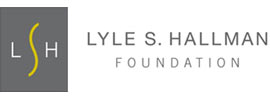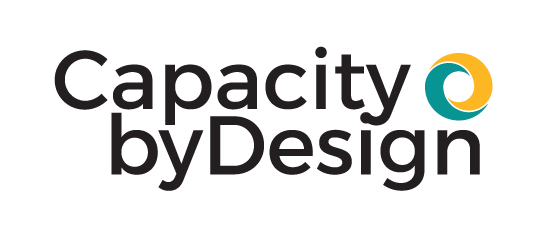
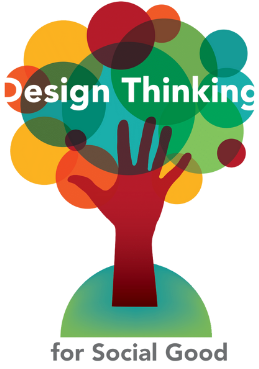
Program Update!
A few seats are still available for our upcoming Atlantic Canada Design Collective launching in June. Applications for these spots will be accepted until April 26, 2024.
Watch the online information session to learn more about the program.
Capacity Canada’s Design Collective Program works with organizations that want to increase their capacity to address complex challenges. Each organization can apply to send two staff from their organization to learn about human-centred design thinking and receive coaching and mentoring to apply it to an issue of importance to their organization. This professional development program is a no-cost opportunity due to the generous support of Suncor Energy Foundation.
Thank You
We are grateful for the financial contributions from the Lyle S. Hallman Foundation and Suncor Energy Foundation. Their support has enabled Capacity Canada to grow the Capacity by Design program in order to engage more social good organizations in addressing big challenges through the application of human-centered design.
Our Challenge
When business as usual stops working for 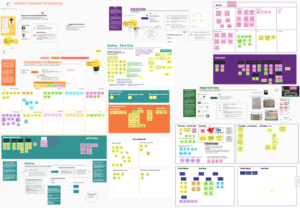 complex challenges that organizations face, Capacity by Design enables teams to explore problems through an alternative lens – a viewpoint that considers problems on a broader level, as part of a diverse network of systems and individuals. Capacity by Design is founded on a human-centered design approach, which incorporates the perspectives of stakeholders when making change or considering new directions of an organization. Approaching challenges in collaboration with stakeholders means that organizations are ‘solving with’ the people whose lives they impact.
complex challenges that organizations face, Capacity by Design enables teams to explore problems through an alternative lens – a viewpoint that considers problems on a broader level, as part of a diverse network of systems and individuals. Capacity by Design is founded on a human-centered design approach, which incorporates the perspectives of stakeholders when making change or considering new directions of an organization. Approaching challenges in collaboration with stakeholders means that organizations are ‘solving with’ the people whose lives they impact.
Programs
Now accepting Applications for our Design Collective!
Human Centred Design Thinking Services
Human Centred Design Thinking Services
The Capacity by Design team delivers hands-on, in-depth professional design thinking sessions that are customized to your organization. Sessions can be delivered online or in-person.
Design thinking can be applied to a range of innovation opportunities that include:
- Developing or transforming services and programs to meet new and emerging needs
- Building better cross-organizational or cross-sectoral collaborations in service of a shared social goal
- Incorporating the perspectives of stakeholders at multiple points in the strategic planning process in order to inform new directions and demonstrate transparency & accountability
- Teams meaningfully collaborate around issues of importance to their organization or network
- Organizations learn how to quickly and inexpensively engage with stakeholders, learning from them in a respectful and ethical way
- Boards of directors and senior leaders learn what is important to key stakeholders
- Individuals gain skills and hands-on experience with new approaches that are applicable in other areas of their work
Using the design sprint approach, we have helped nonprofit organizations and networks to:
- better understand the needs of racialized or otherwise underrepresented people in their community in order to develop strategies to increasing belonging and inclusiveness;
- build and test a prototype that educates the community about how to help Muslim youth in foster care;
- create an online tool that helps potential donors see the impact of their dollars on causes that are most important to them;
- develop a new strategic vision and framework incorporating the perspectives and ideas of individuals who understand and care about the organization’s future direction
- collaboratively develop the elements of a joint funding proposal that draws out shared vision and goals, identifies key roles and responsibilities, and maps out the desired program delivery model.
Design Collective
Design Collective- Embracing the iterative learning that is an important part of Human Centred Design Thinking, Capacity Canada has re-branded its apprenticeship program as the Design Collective. This new name reflects our goal to grow the number of design thinking champions in nonprofits and charities across Canada and our intention to create a community of design thinkers who improve their practice through connection with each other.
Organizations:
- Engage with key stakeholders and learn about their needs in a way that is accessible and ethical
- De-risk change initiatives through a method of developing new solutions that enables them to be tested and refined prior to implementation
- Help grow organizational bench strength through a skill development opportunity
Members of the Collective:
Learn the discrete phases of design thinking along with the tools and approaches unique to each phase.
Grow their expertise with an expanded set of facilitation tools that can be used during any phase in the lifespan of a program, project or initiative
Work collaboratively with other design-thinkers in the field
Be part of an immersive professional development program
Members of our previous cohort worked in social good organizations that focus on seniors, visual artists, women experiencing violence and those from diverse ethnic and cultural backgrounds. During the applied portion of the program, they tackled how to design programs and client experiences that are grounded in the needs of those they serve.
Design Thinking Education
Design Thinking Education – We provide group learning experiences that can be tailored to the needs of a social good organization, collective or network. We also provide an 8-week design thinking course for individuals who are interested learning about fundamentals of human centred design thinking and its application within the social good context.
Customized learning experiences benefit organizations or groups who want to learn about how they can incorporate a design approach into particular aspects of their work. The design thinking course is intended for people working in the social good sector who want to learn a new thinking & doing skill that will enhance their ability to respectfully engage with stakeholders and confidently develop impactful solutions to complex issues faced by the sector.
A family service organization wanted to find ways to engage their staff in the planning of a major project so we worked with the project team to develop their facilitative skills in order to maximize individual ideas and contributions, develop affinity maps to group ideas and uncover insights, and gain alignment around project priorities.
Our Stories
Testimonals
Our Team
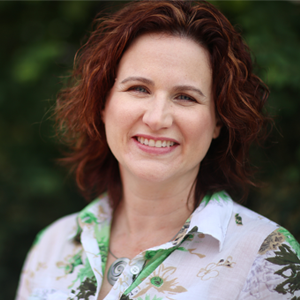
Liz Dennis
Designer
866-317-1992 x23
Liz’s previous roles in the nonprofit sector have ranged from program manager to senior leader. The majority of her professional time and talents have been dedicated to capacity-building organizations and programs in Guelph, Toronto and Peel Region. Since joining Capacity Canada in 2018, Liz has used the lens of human-centred design to stimulate new thinking and approaches to challenges and opportunities faced by social good organizations. Liz has enjoyed expanding her network of wise and dedicated colleagues to Waterloo Region and beyond with Capacity Canada.

Hugh Munro
Designer
866-317-1992 x16
Hugh Munro is currently a design-thinking consultant in Capacity Canada’s Capacity by Design Program. He also continues to teach and consult in the areas of Marketing & Strategy for organizations in both the public and private sectors. Hugh also serves as Marketing Director on the Board for the Kitchener Blues Festival.
Previously Dr. Munro had a long academic career with Wilfrid Laurier University in Waterloo, Ontario where he was a Professor in the Marketing Area. As a Professor he taught courses in the areas of Marketing and International Business in Laurier’s graduate and undergraduate programs and also guest taught abroad at a number of universities. His research interests include the commercialization of innovative products and the internationalization of small and medium-sized businesses. While at Laurier he also served in a number of leadership roles including MBA Director, Associate Dean of Business, and Director of the Laurier Trade Development Centre. Hugh received his Ph.D. and HBA degrees from the University of Western Ontario.
Our Clients & Collaborators
Let's start the conversation.
Thank you for your interest in Capacity by Design! We hope you found answers to any questions you might have had while visiting this page.
Please contact Liz Dennis or Hugh Munro if you have any questions.
[email protected] Or [email protected]

